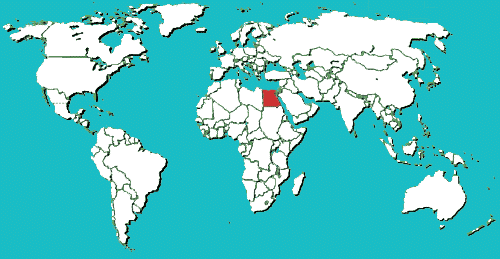
Circle the area on this map

D. Egypt's President Hosni Mubarak, Yemen's President Ali Abdullah Saleh and ousted Tunisian President Zine al-Abidine Ben Ali tolerated little opposition as they ruled their nations for decades. But, all supported the United States, particularly in fighting terrorism.
C. Yemen is one of the poorest countries in the world. Yemen's gross domestic product (GDP) is about $2,600 per person compared with its Arabian Peninsula neighbor Qatar, with the world's highest per capita GDP of $145,300.
A. The country's peace agreement with Israel and its close ties with the United States are unpopular with many Jordanians.
A. The Egypt-Israel peace treaty was signed in 1979 after the Camp David negotiations hosted by President Jimmy Carter. In 1994, Jordan became only the second Arab country to normalize relations with Israel.